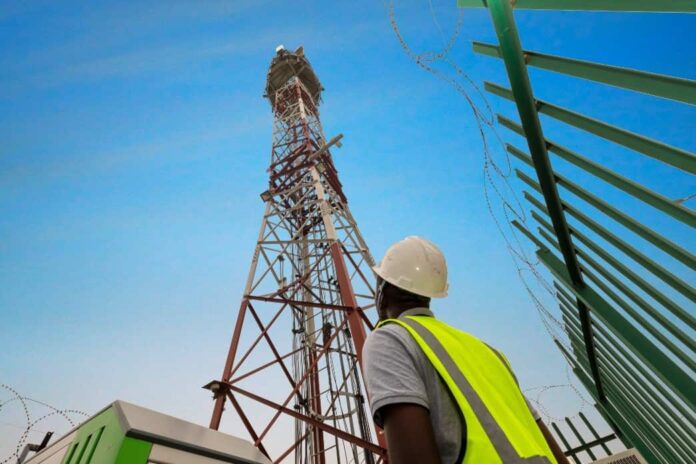Towerco says it remains “engaged” with dissenting shareholders like MTN and Blackwells
Infrastructure provider IHS Towers’ loss widened in Q2 to $1.25bn compared to $178.6m in the same period last year – impacted primarily by an increase in net finance costs driven by Nigeria’s currency devaluation.
The towerco, one of the largest telecommunications infrastructure providers in Africa, Latin America and the Middle East, saw revenue for the quarter hit $546.2m, up from $467.7m YoY. However, the company also cut its full-year revenue outlook. It now expects revenue in the range of $2.08-2.11bn, down from the previous outlook of $2.19-2.22bn.
“Our expectation for revenue would have otherwise increased by $31m had the average FX rates previously assumed in our guidance remained unchanged, reflecting the strength we continue to see in our fundamental business,” said IHS Towers chairman and CEO Sam Darwish. “We will see the full impact of the Nigerian Naira devaluation in our third quarter results.”
IHS Towers has nearly 40,000 telecom towers across its 11 markets including Brazil, Cameroon, Colombia, Cote d’Ivoire, Egypt, Kuwait, Nigeria, Peru, Rwanda, South Africa and Zambia.
On the loss, Darwish said the company was taking a “disciplined approach to capital deployment, including near-term M&A” adding that, end of the quarter, the company had more than $950m of available liquidity and leverage stood at 3.1 times. He said although the Nigerian devaluation will impact adjusted EBIDTA, the towerco will stay well within its 3-4 times target range.
“We continue to have no meaningful debt maturity until quarter four 2025 and we continue to monitor the market and evaluate ways to further strengthen our position as we have done historically,” he said.
“We remain well positioned to take advantage of the strong secular growth trends across our markets, which we expect to continue for years to come,” he said. “We are reporting another strong quarter of performance across our KPIs, but of course, this is in the context of ongoing macroeconomic change in our largest market in Nigeria.”
Capex was $207m, an increase of 41% YoY. The majority of this was in Nigeria and Latam. Sub-Saharan capex actually decreased. The company also announced a share-buyback of up to $50m over the next two years.
Shareholders issue still bubbling along
Darwish sought to downplay recent dissent from the company’s largest investors including MTN, Wendel and Blackwells over governance and a lack of transparency.
“Our board is committed to ensuring the integrity of the independence of IHS as a neutral digital infrastructure provider and to maintaining strong corporate governance, supporting our customers and increasing shareholder value,” he said. “We remain engaged with these shareholders, while maintaining an open and constructive dialogue with all of our shareholders.”
In June, Blackwells Capital asked IHS to appoint new directors to the board to improve its declining stock price. Blackwells accused the towerco of lack of transparency with investors and corporate governance standards – which it said has largely contributed to the continued decline of the share price – and the recent calls by MTN (26%) and Wendel (19%) for reforms.
Blackwells wants IHS to stop “hiding behind” Cayman law and reincorporate in more shareholder-friendly jurisdictions of Delaware or Maryland.
MTN’s issues stemmed from IHS Towers’ decision to reportedly cap MTN’s voting rights at 20%. In 2022, the tower company acquired 5,701 towers from MTN. However, MTN owns 26% of IHS Towers through its subsidiary Mobile Telephone Networks (Netherlands).
For its part, this week MTN Group CEO Ralph Mupita pretty much signalled the telco was no longer thinking of selling up its IHS and would instead take a more strategic view of its investment as it seeks to continue with its group-wide asset realisation deleveraging plans.
On the results call, Darwish announced the departure of non-executive director Bryce Fort from the IHS board, which he has been on since 2013.
Regional roundup
Despite the complex macro-environment in Nigeria CFO Steve Howden said results were “strong”.
“Q2 2023 revenue of $365m increased 13.5% YoY on a reported basis and 37% on an organic basis. In each case, reflecting the devaluation over a small portion of the quarter and the pull-forward of revenue,” he said. “The negative FX impact was $74.5m or 23% due to the Naira devaluation. Our tower count decreased by 2% and total tenant count increased by 0.4% each versus Q2 2022, largely reflecting the planned decommissioning…which does not impact revenue.”
In its sub-Saharan African segment, which includes its South African business since Q2 2022, towers and tenants increased by 1.5% and 2.6%, respectively, versus Q2 last year. Revenue increased by 30%, of which organic revenue grew 15%, driven primarily by escalations, new sites, colocations and FX resets.
However, inorganic revenue grew 19%, driven by the South African acquisition [from MTN] and FX caused a 4.3% headwind. Tenants increased by 543, including 233 from new sites and, 467 from colocation, partially offset by 157 churning, while lease amendments increased by 584.
Darwish was coy on plans in South Africa: “As we stated last quarter and given various dynamics in the market, including an unprecedented level of load shedding that has occurred in the country post-deal flows, we continue to evaluate our opportunities and we will update you as appropriate and if necessary.”
In its MENA region, towers and tenants each grew by 6.8% and revenue grew by 11%, including 8.4% organic revenue growth. Segment adjusted EBITDA grew by 29% in the quarter with a segment adjusted EBITDA margin of 54.5%, reflecting the increased revenue and a decrease in admin expenses. Tenants increased by 99, including 59 from new sites, and 43 from the closing of the fifth stage of its Kuwait acquisition.


